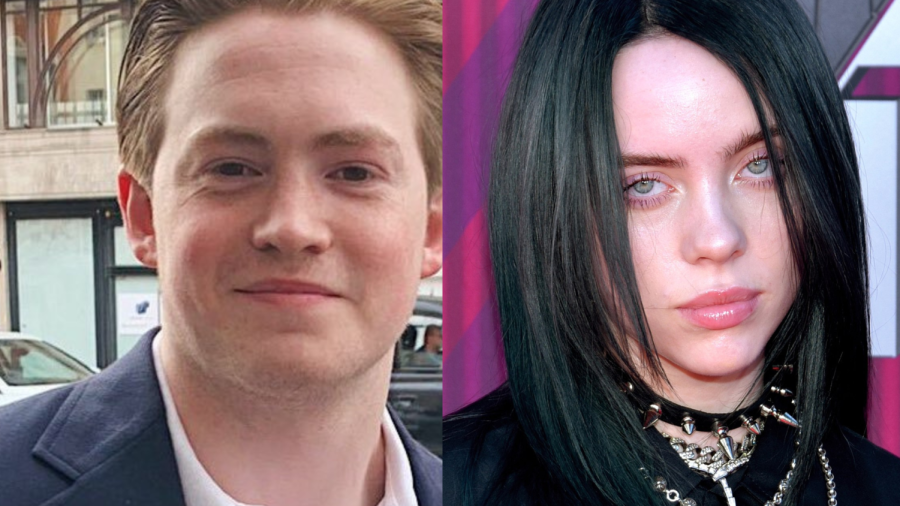Queerbaiting in Pop Culture
In recent years a new conversation surrounding “Queerbaiting” has started, but what is “queerbaiting” and how does it hurt the community?
In the past decade, there has been a rise of LGBTQ+ characters and storylines on TV screens. More doors are opening for LGBTQ+ writers and actors. Many members of the community are happy about representation; however, many are concerned over the idea of “queerbaiting” in the media. What is “queerbaiting” and how does it hurt the community?
“Queerbaiting” can be two things. In some cases, people imply they’re a part of the LGBTQ+ community and receive praise for it, without actually confirming whether or not they identify as LGBTQ+. One example that caused waves last year was when musician Billie Eilish was accused of “queerbaiting” for her music video “Lost Cause.” In the music video, Eilish dances with other women in ways that some construe as sexual. Eilish posted behind the scenes photos and pictures of the set with the caption “i love girls.” Because Eilish had never discussed her sexuality, the music video and Instagram post lead some to believe Eilish was queerbaiting. Though some disliked the music video, many LGBTQ+ people defended Eilish noting that no one is entitled to know about someone’s sexuality, celebrity or not.
In April of 2022, the critically acclaimed netflix show Heartstopper came out. The show features many LGBTQ+ characters, and its protagonist is a gay boy named Charlie Spring. In season one of Heartstopper, Charlie Spring (Joe Locke) and Nick Nelson (Kit Connor) become a couple. Many fans of the show wanted to know if actors Locke and Connor were a part of the community themselves, but some fans took things too far. Viewers of the show harassed Connor into leaving Twitter. After taking a two month break from Twitter, Connor posted a tweet stating, “Back for a minute, I’m Bi. Congrats for forcing an 18-year-old to out himself. I think some of you missed the point of the show. Bye.”
Connor’s emotional response was likely due to the overwhelming pressure of recent stardom. The backlash Connor received was especially ironic considering the show demonstrates how difficult it can be to be out of the closet before one’s ready. In this tweet, “outing” is mentioned, but what does “outing someone” mean? Simply put, outing someone is forcing a person to label themselves before they are ready.
The other version of queerbaiting revolves around animation and marketing teams. Today’s animation is full of LGBTQ+ characters and run by the community itself. Many popular animated shows as such, The Owl House (2020), She-Ra and the Princesses of Power (2018), Steven Universe (2013), The Legend of Korra (2012), and Kipo and the Age of Wonderbeasts (2020) feature LGBTQ+ characters and or protagonists. Although many new shows strive for inclusivity, some reinforce negative tropes surrounding the LGBTQ+ community.
Voltron: Legendary Defender (2016) is infamous for its controversial gay representation. After several years of teasing a gay relationship, the creators confirmed that a character named Shiro was a gay man and that fans would see his fiance in the upcoming seventh season. Unfortunately, this seventh season was filled with disappointing tropes surrounding gay representation in TV. Shiro’s fiance Adam is only shown in flashbacks and barely in the season. Adam is featured in flashbacks, arguing with Shiro, before being killed off. The marketing team for Voltron heavily pushed Shiro and Adam’s relationship and fans were outraged after feeling lied to. Many felt that Adam’s death was another example of the “Bury your gays trope” where gay characters are killed off and underdeveloped because writters are unsure what to do with them.
Unlike with Connor, the Voltron team deliberately lied to their audience. The Voltron and Heartstopper situations are completely different because the Voltron situation doesn’t involve real people. Connor came out before he was ready, whereas the Voltron team was held accountable for lying. But why is this so important? If a show uses the LGBTQ+ community to find more fans, what’s the harm? In some cases, these show writers don’t have the community’s best interest at heart, and the community suffers from negligent writers. Although the world becomes a more accepting and diverse place everyday, some people don’t live in progressive places. For some people LGBTQ+ characters on TV are the first exposure they’ve had to the community. It’s important to put care into portrayals of marginalized people. Queerbaiting for shock value leaves a poor taste in people’s mouths and most importantly a negative impression.


